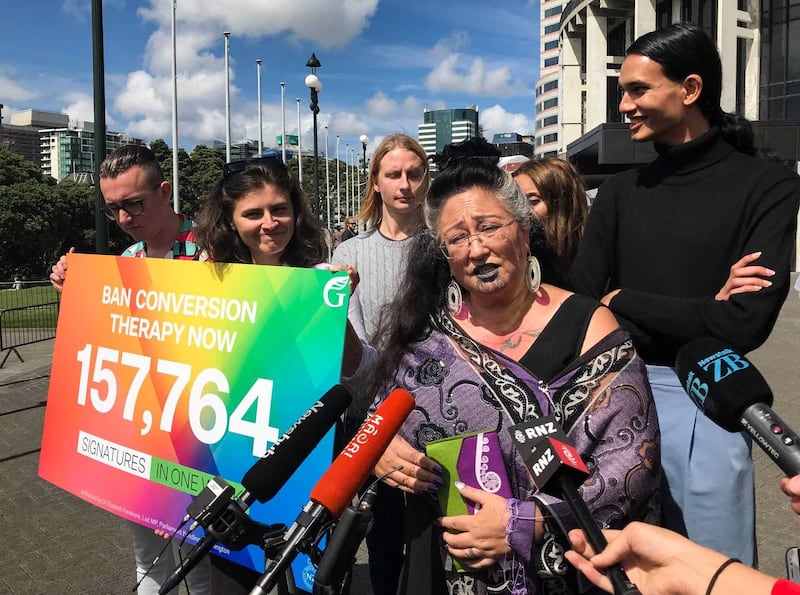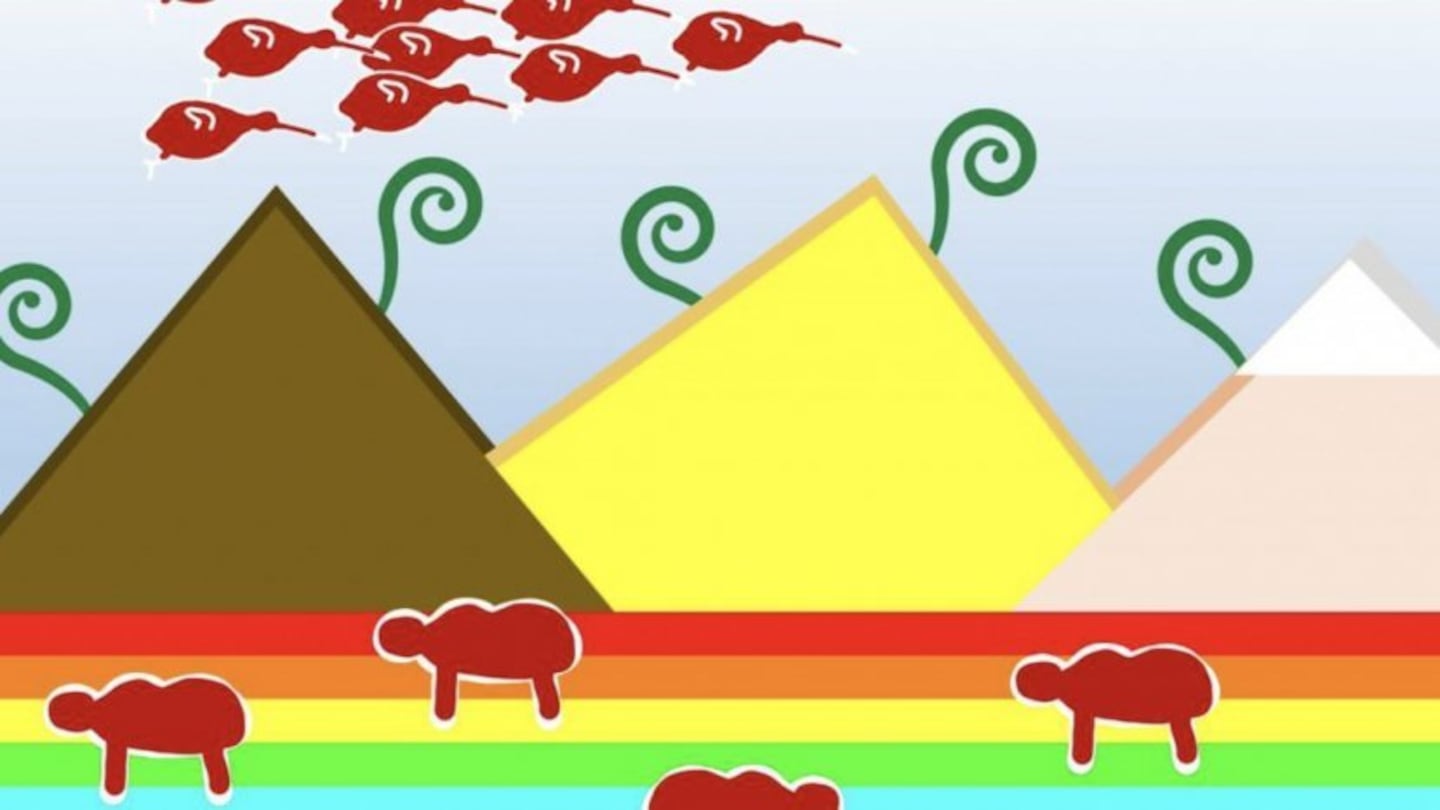'Gains' was a design pitched by Logan Wu during the country's flag referendum in order to illustrate how far Aotearoa has come since colonization. Photo / Supplied
By Shanice Dent
I work in the Te Kāhui Tika Tangata Human Rights Commission’s conversion practices response team. The team was set up to hear complaints and raise awareness of the practices after they were prohibited by Parliament last year.
The ban relates to any practice, sustained effort or treatment that seeks to change or suppress someone’s sexual orientation, gender identity or gender expression.
I am of Māori, Pacific and Pākehā descent. It’s a privilege to be a member of a team to help and advise conversion practices survivors. I consistently hear of the damage caused to LGBTQIA+ Māori or takatāpui Māori, and how colonisation has diminished their comfort in being Māori and in their rainbow identities.
Takatāpui is a traditional term meaning intimate companion of the same sex. It has now been reclaimed and used by many Māori to embrace their diverse sexual orientation, gender identity or expression, or sex characteristics.

Green Party MPs Chloe Swarbrick, Marama Davidson and Elizabeth Kerekere deliver a 150,000-signature petition to Parliament calling for a ban on conversion therapy. Photo / NZME
Colonisation – and for many, the adoption of Christianity – resulted in takatāpui relationships being regarded as sinful and the word takatāpui being lost. The sexual and gender fluidity previously accepted by Māori society similarly fell away.
The takatāpui community is incredibly diverse. That’s why learning about conversion practices from Māori survivors is key. Many stories publicly shared include a deeply religious background and the dread of losing whānau and community should they come out. Compared to that, starting so-called conversion “therapy” appeared – at least at first – a no-brainer.
In his oral submission to the Justice Committee in favour of the bill to outlaw the practices, Rob Sykes spoke of choosing conversion therapy when he was 30 and deeply religious because he feared coming out could mean losing his relationship with his young children as well as losing his friends, family and lifestyle.
Conversion practices 'do not work'
While he described the therapy as relatively gentle – not physical – it still caused stress, anxiety and his first panic attack. A lifetime away – now 46, with a husband, a great career, and a strong relationship with his children – Rob is still affected by the practices.
Conversion practices do not work. Instead, they tell takatāpui their very existence is wrong. On top of this, there is a sense of failure and shame when the change they seek inevitably does not happen.
As Māori, we need to see and hear of these experiences and also how we have healed. Recently, Tia, a Māori transwoman and survivor described how support from her brothers and legitimate counselling helped her accept herself. These stories of family acceptance are crucial for healing and for changing the idea that all whānau and family are at odds with Rainbow identities.
Reclaiming indigenous identity
There is clear international evidence that conversion practices are harmful but tangata whenua – as well as Pasifika – voices are largely missing from this evidence. There is now an opportunity to build an understanding of how we can end conversion practices in our communities and how we best support those who have been through them.
One survivor spoke on national radio of their recovery being helped by identifying as takatāpui, receiving a moko kauae, drawing on Māori concepts and understanding of atua, and writing poetry.
This is a reclamation of indigenous identity that many Māori, in conservative religious settings, believe is an affront to Christianity. These black-and-white ways of thinking hinder someone from being both takatāpui and religious. This group needs more options for wellbeing – not less.
Religion and spirituality respected
Similarly, there can be a misconception the legislation prohibits people from preaching or praying about their beliefs – or is at odds with religious practice. It is not. The commission respects the role that religion and spirituality play in people’s lives and communities.
Many survivors want to continue being part of a faith-based community. There are examples of good practice in religious communities and the commission would welcome contact from those wanting to understand the legislation and what conversion practices are.
People interested in learning more – or participating in the research – can contact the commission. The leader of the conversion practices response team Matt Langworthy – himself a survivor – describes the research as an opportunity to make something good happen from the experience.
Commission group manager Andre Afamasaga – also a survivor – describes the research as a koha to future generations of Māori, Pasifika and ethnic LGBTIQ+ people.
.It's about sharing mātauranga and wisdom earned the hard way – and therefore not in vain. Guidelines are available on the commission's website or contact info@hrc.co.nz or call 0800 496 877 to leave a message for a callback.
Shanice Dent is Tainui, Pacific (Pukapukan), Pākehā; a human rights worker and member of Te Kāhui Tika Tangata, the conversion practices response team.



